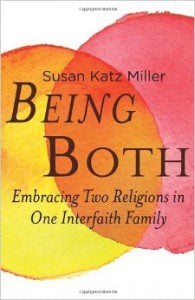 |
|
The Beautiful Names in Westminster Cathedral
|
The protestors outside Westminster Cathedral came to demonstrate their outrage at the desecration of their church by, as one online antagonist put it, “the sound of heathen hymns in a Cathedral made Sacred by Christ’s Presence.” Holding placards and singing hymns, the small, stoic bunch surely knew their case was a lost cause. The sold-out crowd shuffled past them having waited in a queue that stretched around to adjacent streets. The buzz of anticipation was well-founded. They were here to listen to the world premiere of composer Sir John Tavener’s The Beautiful Names – a meditation on the 99 names of Allah performed by the BBC Symphony Orchestra and sung in impeccable Arabic by the BBC Symphony Chorus with tenor John Mark Ainsley.
Composed by a famous convert to Orthodox Christianity, inspired by a Sufi sage, commissioned by the future head of the Church of England and performed in a Roman Catholic cathedral, The Beautiful Names is a testament to Tavener’s confident spiritual universalism, his willingness to have his faith enriched by other traditions. The political impact of this exploration isn’t lost on him. He hopes the piece will, “contribute a little to an inward healing of the appalling strife that permeates the modern world.” For Tavener this is an act of devotion, of drawing close to God unashamedly, of turning to religious tradition for solace precisely at the time when religious practice is increasingly maligned and deemed anachronistic. The Beautiful Names is a bold musical rebuff to the narrow-mindedness of fundamentalist bigots (Muslim and Christian) and secular fanatics (like Dawkins and Hitchens) alike. Neither would be too pleased with his accomplishment.
The Beautiful Names is a challenging work. It doesn’t easily fall on the ear and it doesn’t immediately make the listener feel comfortable. It demands that we be involved, pay attention to each name as it is recited and to notice that no two names are the same in their musical quality. As Tavener himself points out, there is almost no repetition in the entire work. It is a contemporary piece that has a traditional sensibility: it requires patience and needs to be experienced at its own pace – slowly as it unfolds. “The Beautiful Names came to me as a vision. I contemplated the meaning of each of the Names as well as the sacred sound of the Arabic, and the music appeared to me spontaneously, neither chaotic nor random,” says Tavener.
The 99 names are divided into nine groups with the first eight being proceeded by the “magisterial cries of Allah.” In the first part, for instance, each name is sung by the tenor – a robust performance by John Mark Ainsley – and echoed by half the choir, who are quickly followed by the other half. The meaning of each name is mirrored in the music, the result of a meditation that is precisely crafted.
Taken from the Qur’an and the sayings of the Prophet Muhammad, the 99 names or attributes of God are a mainstay of Muslim devotion. They are committed to memory at an early age, chanted and sung. Scholars of classical Islam, like Abu Hamid al-Ghazali, wrote treatises exploring the spiritual power and significance of these attributes. They are a means to come to terms with the vast ineffability of the Divine. The names often appear together in the text as sets of opposites – as ying-yang pairings: Al-Muhyi, The Giver of Life is followed by Al Mumit, The Taker of Life. God is at once Al-Tawwab, The Ever Relenting and Al-Muntaqim, The Avenger.
Tavener beautifully captures this sacred poetry. Al-Ghaffar (He who is full of forgiveness) is sung in a plaintive tone, announced with gentleness by the tenor, echoed sweetly by the choir. It is followed by Al-Qahhar (The Dominator), sung with intensity and force, the sound of the brass darkly rising to meet the voices of the choir. Al-Adl (The Just) is announced with categorical force, a vocal punctuation. It is followed by a soft, breathy Al-Latif (The Very Subtle) that stretches until it becomes almost inaudible. The singers proclaim Al-Dhahir (The Manifest). Yet Al-Batin (The Hidden) is concealed in the music, buried among overlapping voices. At times the choir falls into whispered entreaties, faint murmurs of either awe or humility. The Native American pow-wow drum is struck to announce each name.
Listening to The Beautiful Names, I was reminded of the dhikr gatherings held at the dergah of the Halveti-Jerrahi Sufi order in Istanbul’s working class Karagumruk district where the congregation’s singing and rhythmic repetition of prayers is at once disciplined, meditative and rapturous. I could hear in the steady, triumphant chanting of “Allah, Allah” by the BBC chorus, the controlled ecstasy of the dervishes as their ritual of divine remembrance reached its crescendo. The Beautiful Names is indeed more prayer than performance.
Tavener’s work has precedence in writings of another Englishman, Sir Edwin Arnold, the 19th century editor of The Daily Telegraph who wrote a popular treatise on the life and teachings of Buddha and then followed up with a remarkable volume entitled Pearls of the Faith, a lyrical verse commentary on the “beautiful names” of Allah. Having lived in India during the 1857 uprising, Arnold was keenly aware of the dangers of religious conflict; his work no doubt came out of a desire for amity. “For Islam,” he wrote presciently, “must be conciliated; it cannot be thrust scornfully aside or rooted out. It shares the task of the education of the world with its sister religions.”
The Beautiful Names is a timeless plea for tolerance that is grounded in spiritual reflection and musical imagination. Composers write for posterity. I hope future generations will remember (perhaps stumble upon) this work and see it not just as a piece of music shaped and bounded by the current debates over the presence of Islam and Muslim in Europe, but as a testament to religious devotion that transcends the discrete bounds of any single faith.
We, however, don’t have that luxury. The Beautiful Names makes a powerful argument against those who raise a hue-and-cry about whether Islam “belongs” by making aural the spiritual tissue that connects Islam and Christianity. The symbolism of a sacred Islamic litany being performed in a Christian church is a more tangible symbol of inter-faith understanding than a dozen government funded talk-shops. Tavener also, unintentionally perhaps, throws down the baton to Muslims. If Islamic sacred music can be performed in a Church, interpreted by an Orthodox Christian, will we see similar attempts by Muslims to create spaces for the celebration of other, congruous, sacred traditions in Mosques? It is fitting that this remarkable music will next be heard in Istanbul – the city on the faultline of Europe’s identity crisis. The Beautiful Names will be performed at the Aya Irini, an ancient Eastern Orthodox Church situated on the grounds of the Ottoman Topkapi Palace.
As I left the cathedral, the protestors had dwindled to a handful. They weakly sang Ave Maria to the rainy night. I felt sorry for them and their poverty of spirit, their miserly credo. The Beautiful Names is not for the timid or the dogmatic – it is a work of sublime beauty that turns our attention, categorically and without excuse, to God – in all His names.
Abdul-Rehman Malik is Contributing Editor with Q-News – Britain’s leading Muslim current affairs magazine. A version of this review appears in the latest edition of Q-News.











